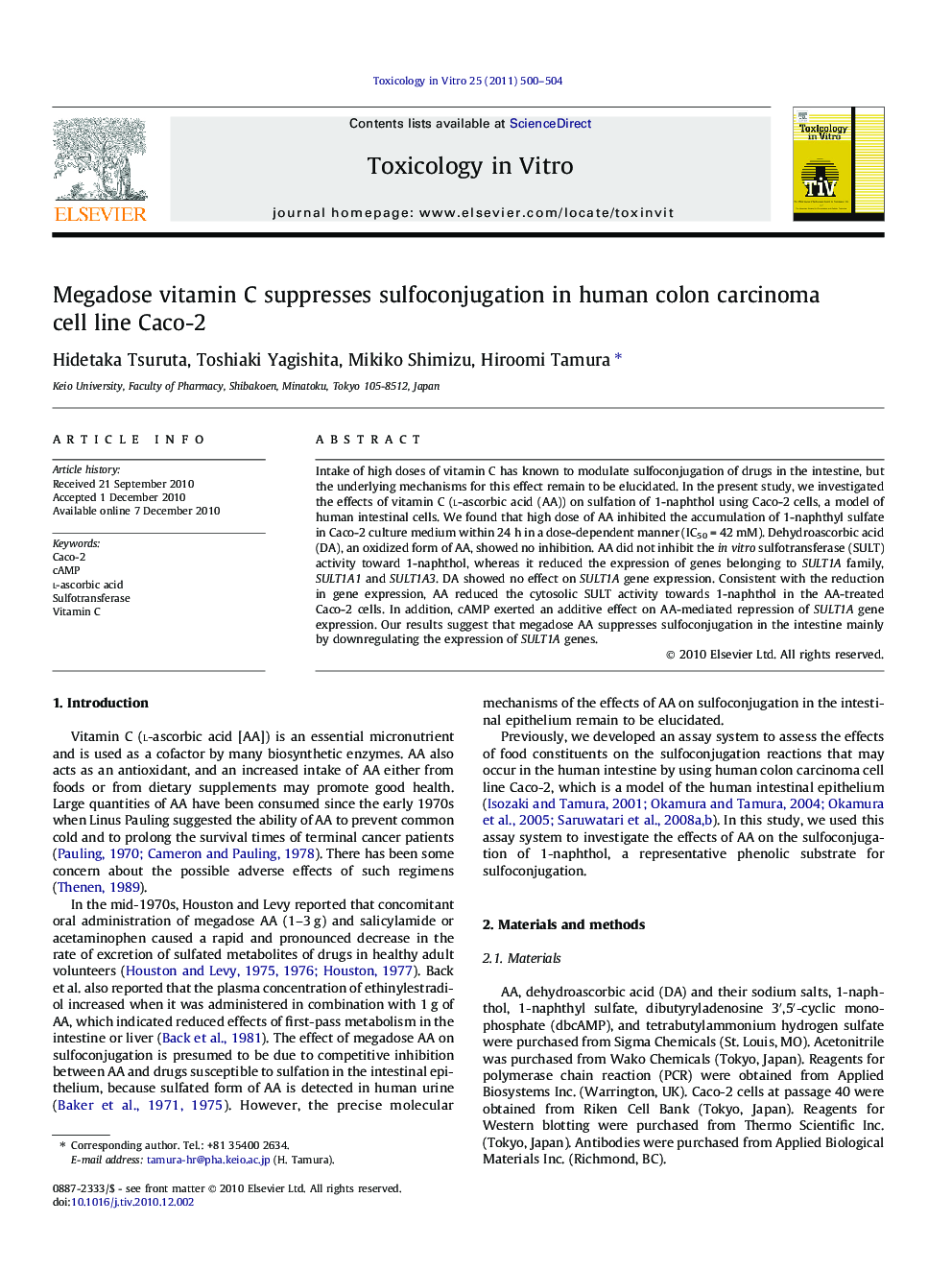| Article ID | Journal | Published Year | Pages | File Type |
|---|---|---|---|---|
| 5863114 | Toxicology in Vitro | 2011 | 5 Pages |
Abstract
Intake of high doses of vitamin C has known to modulate sulfoconjugation of drugs in the intestine, but the underlying mechanisms for this effect remain to be elucidated. In the present study, we investigated the effects of vitamin C (l-ascorbic acid (AA)) on sulfation of 1-naphthol using Caco-2 cells, a model of human intestinal cells. We found that high dose of AA inhibited the accumulation of 1-naphthyl sulfate in Caco-2 culture medium within 24Â h in a dose-dependent manner (IC50Â =Â 42Â mM). Dehydroascorbic acid (DA), an oxidized form of AA, showed no inhibition. AA did not inhibit the in vitro sulfotransferase (SULT) activity toward 1-naphthol, whereas it reduced the expression of genes belonging to SULT1A family, SULT1A1 and SULT1A3. DA showed no effect on SULT1A gene expression. Consistent with the reduction in gene expression, AA reduced the cytosolic SULT activity towards 1-naphthol in the AA-treated Caco-2 cells. In addition, cAMP exerted an additive effect on AA-mediated repression of SULT1A gene expression. Our results suggest that megadose AA suppresses sulfoconjugation in the intestine mainly by downregulating the expression of SULT1A genes.
Related Topics
Life Sciences
Environmental Science
Health, Toxicology and Mutagenesis
Authors
Hidetaka Tsuruta, Toshiaki Yagishita, Mikiko Shimizu, Hiroomi Tamura,
